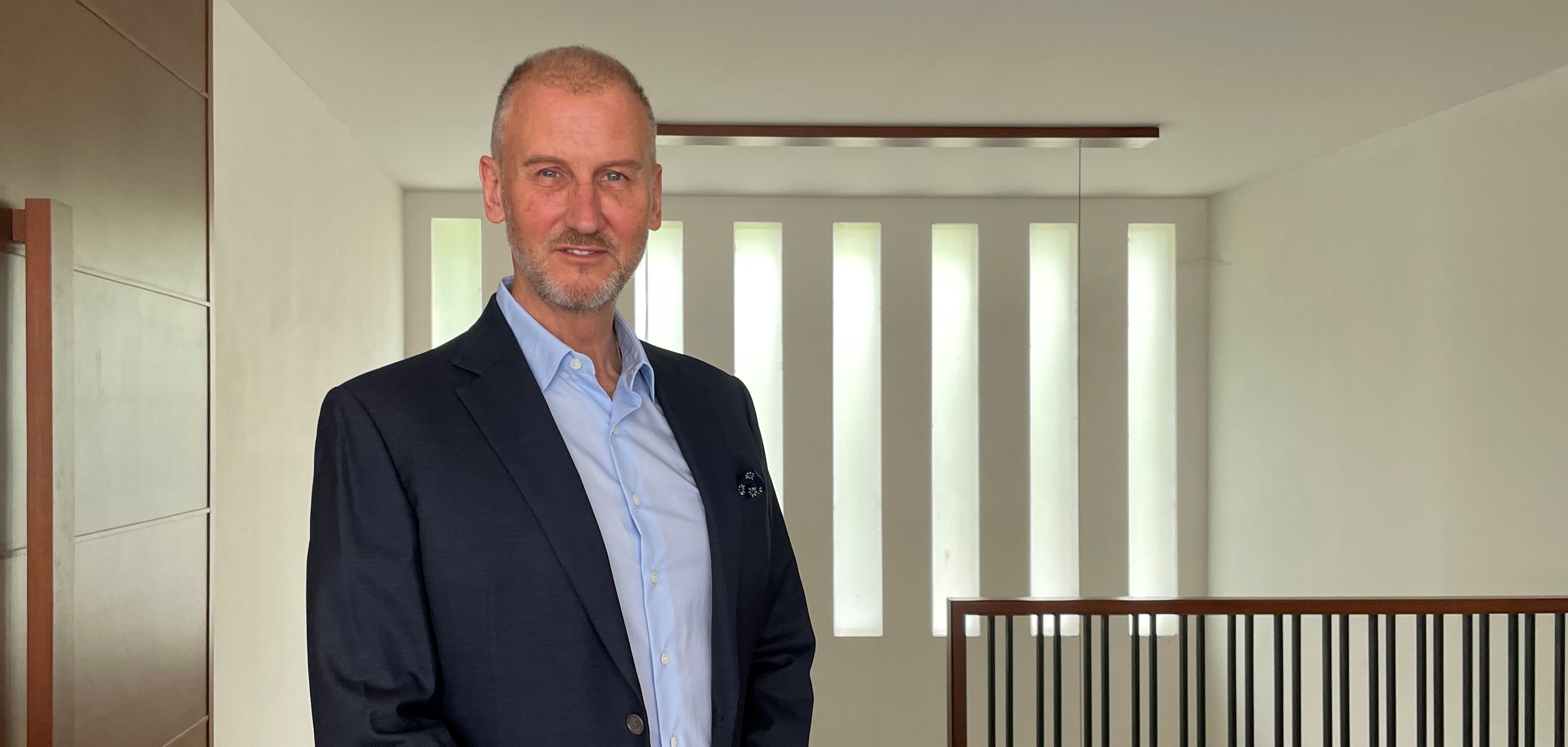IPI Innovation Advisor Mike Amour believes that most SMEs have a great story to tell. But many CEOs and their teams don’t know how to tell that story well…or at all. As an advertising and marketing veteran, Amour has lived and worked over the past three decades in London, New York, Tokyo, Paris and, since 2004, Singapore, where he has been responsible for managing up to 17 countries with over 60 offices at any one time across the Asia Pacific region. As an Innovation Advisors today, he helps companies articulate corporate strategies and bring clarity to a brand’s purpose, or value proposition.
Helping companies simplify the complex to tell their story
The best articulated corporate strategies are usually the simplest. However, many tend to be overly complicated, making them hard to remember, or worse, difficult to implement.
Most SMEs Amour meets have got a great story – amazing products or services or technologies – but they don’t know how to tell that story simply and clearly.
He uses a simple technique – the ‘30 second plane test’ - to illustrate the problem to the business owner and the management team: “You’re sitting on a plane and the person next to you says, ‘What do you do?’ You answer, ‘I work for ABC Pte Ltd’. ‘Oh, that sounds interesting. So what does ABC Pte Ltd actually DO?’ ”.
He then asks the business owner and each of the management team to answer that question in one sentence, and in less than 30 seconds. It sounds simple, but is actually much harder than people think. Frequently the initial answers are several minutes long, highly technical and detailed, and whilst factually accurate, are confusing to the listener and fail to articulate the true value proposition of the company.
Part of Amour’s task is to help SMEs uncover elements of their value proposition that they may not think are interesting, or perhaps they have lost sight of, and to bring them powerfully into the light, or make them newly relevant.
For context, most venture capital companies these days expect anyone wanting to raise capital to do their entire pitch in 15 minutes and with no more than 12 slides. Critical to this is the expectation that the company is able to articulate its purpose on the very first slide, and to do it in one sentence.
As Steve Jobs said, “Simple can be harder than complex. You have to work hard to get your thinking clean, to make it simple.”
Everything about a brand communicates
Amour uses another simple technique to further illustrate the notion that everything about a brand communicates.
A review of the company’s website, corporate brochures, presentation decks to clients, prospects, investors, LinkedIn posts, even business cards, can quickly highlight multiple, often confusing messages that make it hard for anyone looking in from the outside to understand clearly what the company’s single-minded value proposition is.
Amour’s role is to help SME’s navigate all of this, to bring clarity, to help identify a value proposition that allows them to become better story-tellers, and to communicate that story in a way that moves and inspires people to action.
Once that story is uncovered, it needs to be consistent to all constituents: employees, clients, prospects, partners, vendors, even media.
As Amour explains, “There is an expectation today for companies to be ethical, and accountability and trust are at a premium. Therefore the need for consistency in how a company presents itself has never been more important. With social media and the speed at which a message – good or bad – can circulate the globe, it can take ten years to build a reputation, and ten minutes to destroy it.”
Growth and Innovation Beyond Borders
Clarity and consistency are also key to growth beyond borders. Amour says many SMEs frequently do not have a clear business strategy for overseas expansion. It can be difficult for SMEs to identify and navigate the complex cultural, economic and business practice differences that exist in international markets.
“Asia Pacific is a region that cannot be averaged," he says. “Many people think that what works in one Asian market will work in another. It’s highly complex, made up of very different cultures, economies, geo-political issues, variable business practices, languages and so on. Not having a rigorous enough understanding of these can quickly become a very expensive distraction for management, and potentially damaging to the business”.
This is another reason why having a focused, clearly differentiated company purpose is so important. It goes beyond just alignment of key constituents. It can help provide the correct context for making decisions about overseas expansion, creating new business partnerships, potential M&A targets and so on.
Simplify the complex: a critical factor for SMEs to develop better corporate strategies and brand communications, so as to accelerate their growth.

